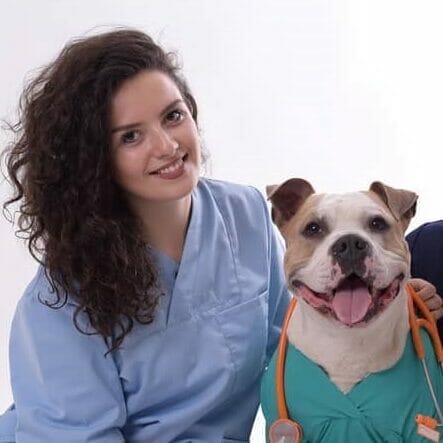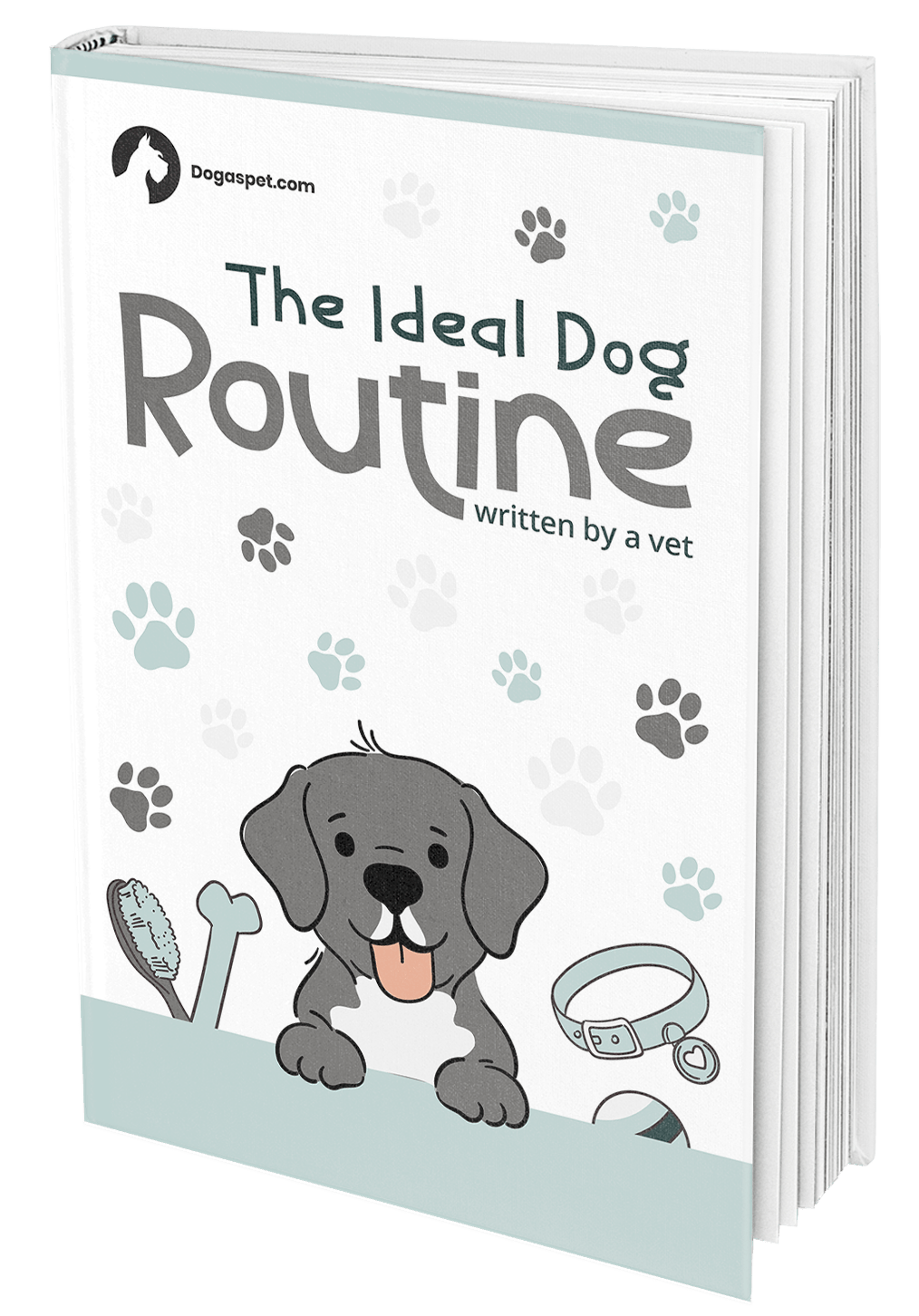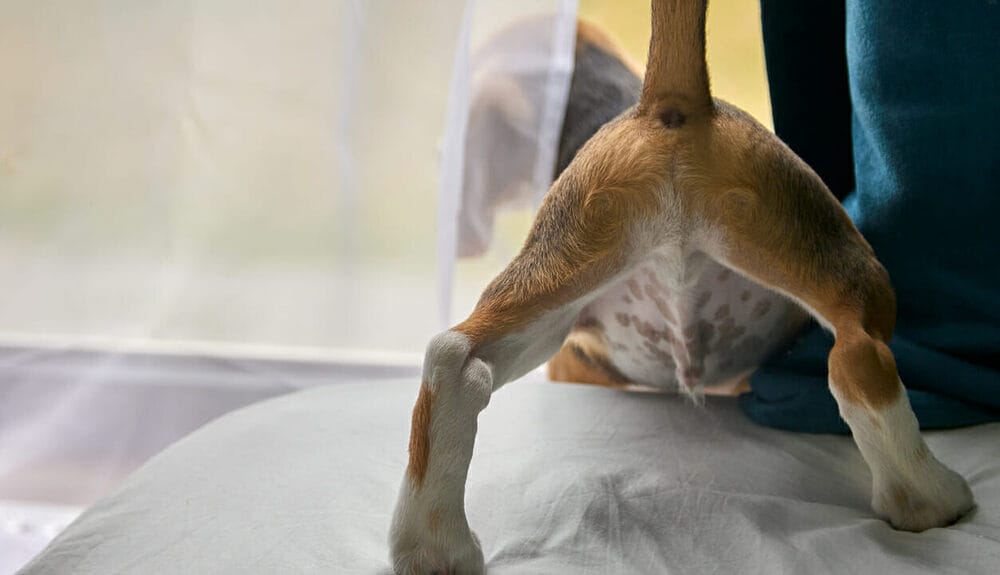
One issue often arises when caring for a dog is its anal glands. Of course, as a responsible dog owner, you need to take your dog for regular gland clean-up, but on rare occasions, even after you get the dog’s glands expressed, your furry companion might still be leaking after getting its glands expressed.
Is your dog leaking all over the house, leaving a yucky smell and discharge all around the house? Unfortunately, although rare, such discharge may indicate a more serious health problem.
5 Reasons Why Your Dog Is Still Leaking After Getting Its Glands Expressed
You just got home from the vet, opened a bag of chips, put on some relaxing music, and baam, the dog gets diarrhea. What could be the reason? You just got their glands expressed. Is someone at fault? Could there be any specific reasons why dogs’ anal glands leak after manual glands expression?
Although rare, this can happen. But, regardless of the reason, we are sure that’s nothing serious with your dog. So, to put your mind at ease, let’s look at the possible reasons for this non-everyday occurrence.
Incomplete expression
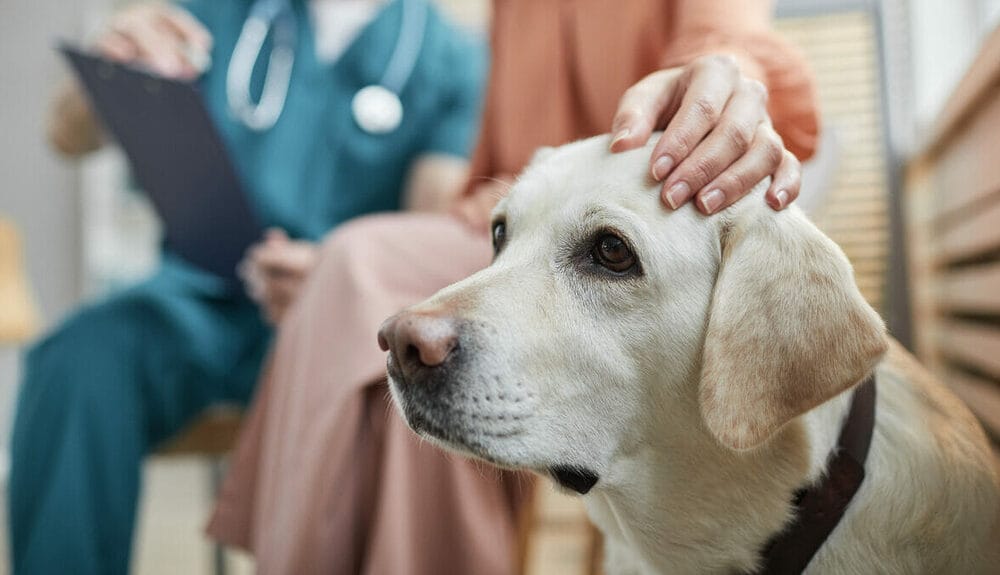
To fully express the anal sacs, the vet needs to squeeze the skin overlying the anal sac or by an internal expression by a finger in the rectum.
After bringing your dog home, you might notice a brown discharge coming from its anus. This happens only if the vet or the dog professional didn’t express the glands entirely or the glands were in an unreachable, abnormal position.
While this is not a cause for concern, your dog might feel discomfort and start licking or scooting the affected area, making it a bigger deal than it already is. In addition, the dog can infect the area by excessively licking, leading to a foul odor and an unusual discharge.
Impacted or infected gland
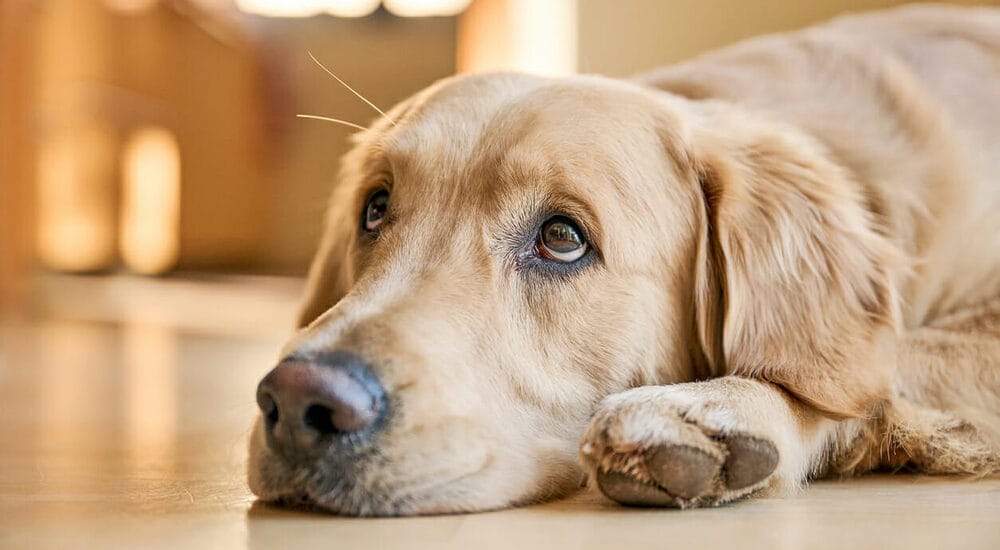
We know that dogs have two pairs of anal sacs, which are skin invaginations between the muscles of the internal and external anal sphincters. However, there may come a time when the waste is stuck between the muscles requiring an urgent manual gland expression.
While it’s normal for the dog to be sore or lethargic in the next few days, excessive leaking from the anus is not that frequent. However, if your dog still leaks, bring it to the vet immediately, as it may be due to an infected gland, which, if not treated properly, can infect other body areas. An infected gland can lead to severe digestive issues.
Health issues
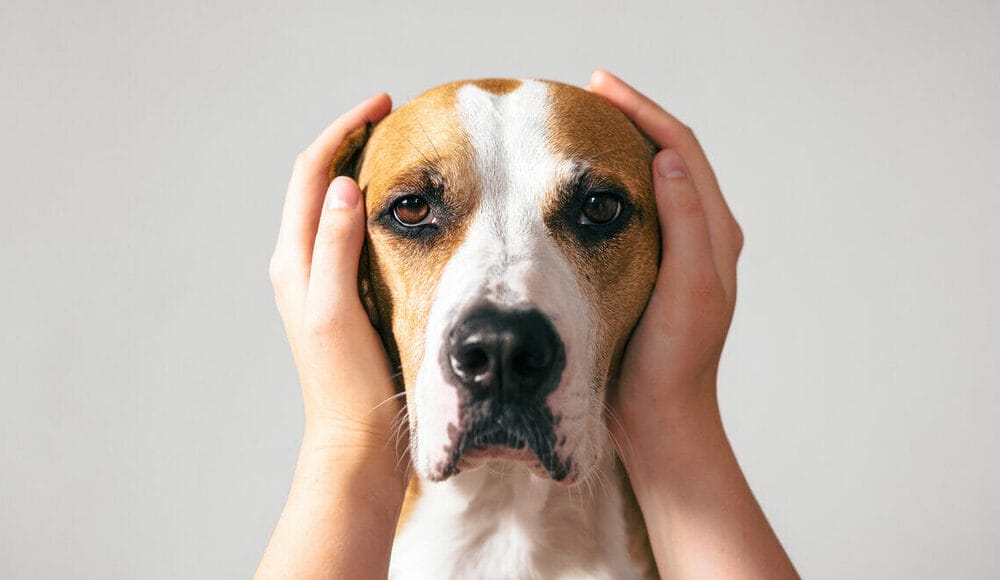
The anal glands regularly produce odor which helps dogs mark their territory. So contrary to popular belief, when your dog tries to cover its poop, it leaves a strong scent that marks the territory.
And while it’s normal for the dog to produce a strong fluid, it’s not common to leak after getting the glands expressed. This can indicate an underlying health problem.
So if this occurs, we suggest you visit the vet and see what may be the cause. Several issues, such as allergies, anal sac tumors, or obesity, can cause gland problems.
Also, if your dog is put under some medications, the medications can cause it to produce more fluid than usual.
Dog’s diet
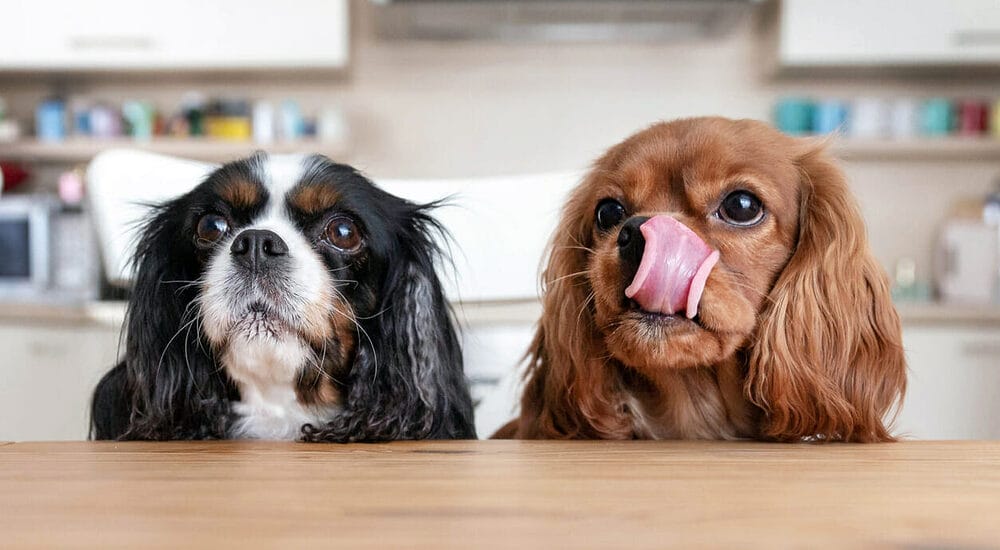
Another reason why your dog may still be leaking is the diet. If your dog eats food high in fiber, there’s a high chance for its stool to have a foul odor. For that reason, you need a diet with just the right amount of fiber.
Anal sac abscesses
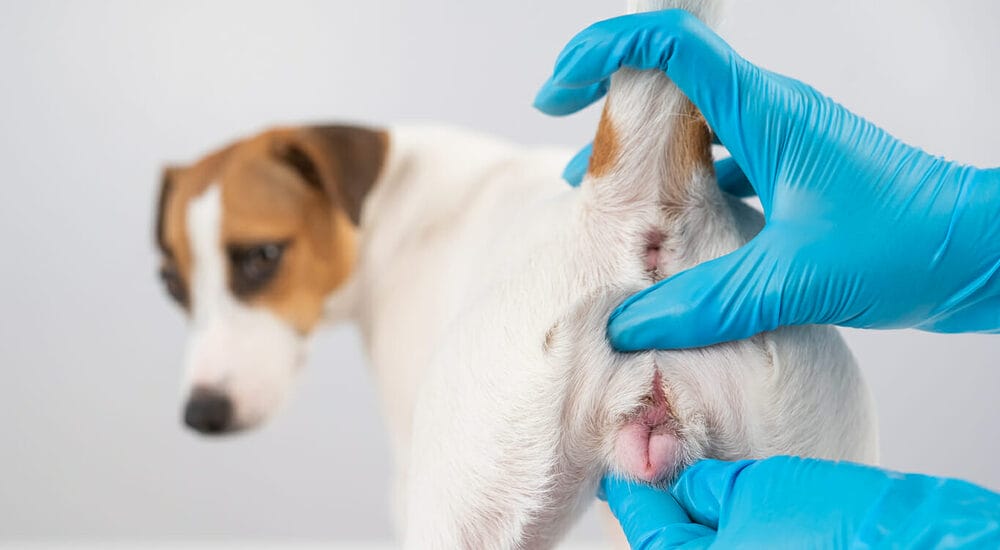
Anal sac abscesses is an infection that occurs when the ducts are completely blocked, resulting in redness near the dog’s rectum and causing pain to the dog, leading to lethargy and lack of appetite. The smelly liquid will come from the swollen red area.
If you notice something similar with your dog a couple of days after bringing it home, contact your vet immediately. Don’t wait for the infection to advance. It’s already painful for your dog.
Keep in mind that anal discharge is only acceptable two to three days after getting the glands expressed. After that, it may be a cause for concern, and what was a minor inflammation can lead to an infection or anal sac abscesses in no time.
What to Do If the Dog’s Bottom Continues to Leak after Being Expressed?
Even though we noted all the possible reasons for the dog’s bottom leaking, you might want to take additional precautions to prevent severe health damage.
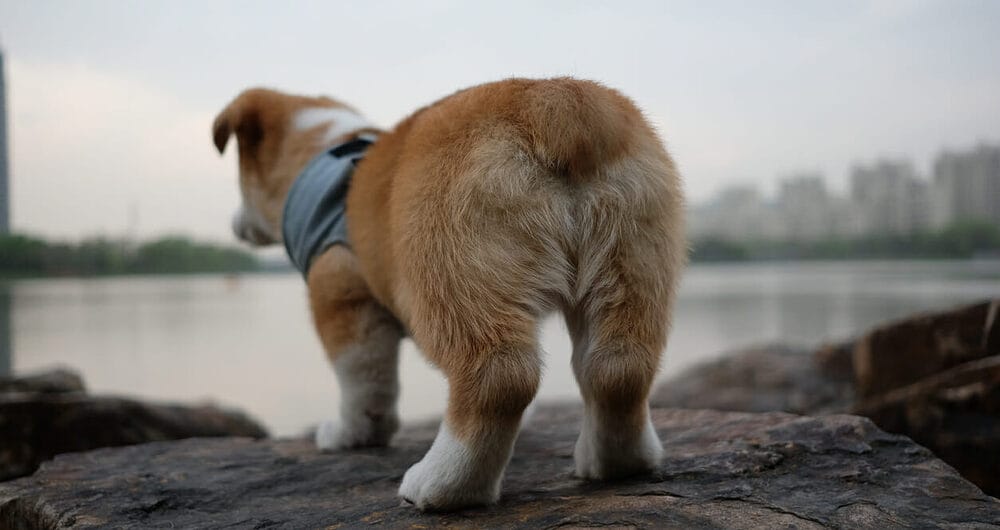
Contact the vet
If you notice your dog leaking excessively from its rear, take them to the vet immediately for a proper evaluation. In this case, your vet might be required to clean the glands thoroughly once again.
Taking just this small precaution can save your dog from further health complications. However, if the glands are not expressed properly, it can cause infection or irritation for the dog and family members.
Follow some dietary changes
If your dog’s glands are still leaking, maybe you’ll need to make some changes in its diet to help manage gland problems.
To prevent further anal leaking, your dog should consume high-fiber food. This food type could help prevent future anal gland problems and promote regular bowel movements.
Keep your dog clean
To prevent any further irritations or infections, you might want to keep a damp cloth nearby if your dog’s glands still leak.
Gently wipe the area after a bowel movement, bathe them more regularly in this period, and avoid using human or baby wipes on your dog, as they contain fragrances that can cause irritation.
Just to be on the safe side, if you have a long-coat dog, cut the fur around the anal area to prevent fecal matter from spreading further.
Keep an eye out for side effects
The hardest thing about being a pet parent is seeing their dog sick and lazy, unwilling to run around like it used to. Even the slightest change can trigger some side effects in dogs.
So if you see your dog still leaking from its anal glands days after getting them expressed, monitor them closely for any adverse effects. The most frequent symptoms are:
4 Adverse Side Effects That Can Come With Leaking Glands
- Vomiting
- Lethargy
- Lack of appetite
- Fever
FAQ – Frequently Asked Questions
You may have a few questions before we wrap things up; here are some of the most frequently asked:
How do I know that my dog’s anal glands are empty?
Once you see that your dog stops scooting and biting its tail and there is no redness around the anus and no discharge, your dog’s anal glands are finally empty.
Why is my dog still leaking after getting its glands expressed?
If your dog leaks after getting its glands expressed and you notice a foul smell coming from his anus, it may be an anal gland infection, abscess, or other health problem. Be sure to contact your vet if the situation doesn’t improve for the better in the next 24 hours.
Why is my dog leaking clear fluid from the anus?
Your dog may leak clear fluids from the anus because its anal sacs are full, and this is the dog’s way of relieving pain and discomfort.
Conclusion – Wait And See
Dogs with a poor diet may need to have their glands expressed manually. But, if the glands still leak after getting them expressed, wait a couple of days for the dog’s body to stabilize.
It might be a fluid accumulated in the rectum. But if it doesn’t stop, seek veterinary help immediately, as it may cause an infection or hidden health issues.
